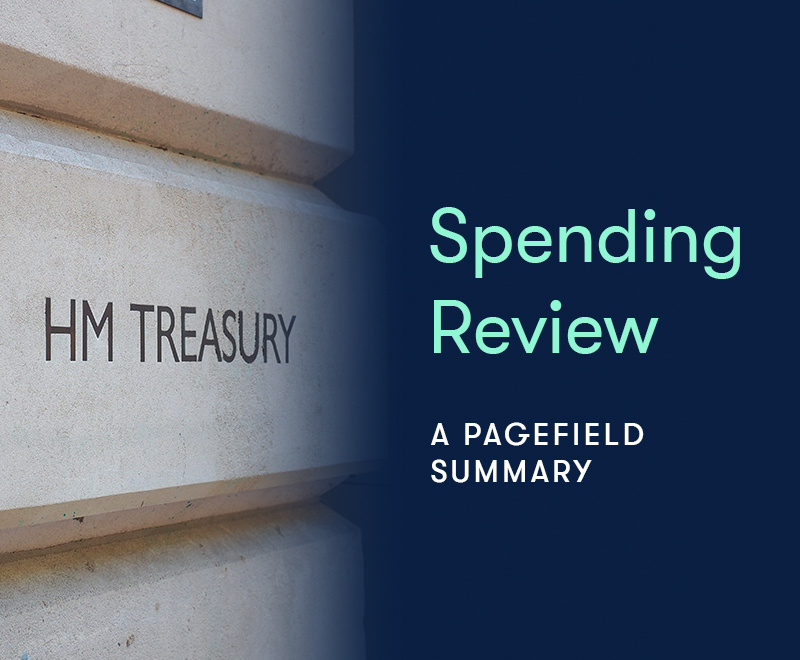Pagefield rounded-off its Party Conference programme this week up in a rainy Manchester for the Conservatives annual meeting.
Josh Lambkin and Sam Oakley take the temperature…
Et tu, Owen?
No sooner had the conference centre opened its doors than the streets of Manchester were ringing with chants of “Tory scum” and “murderer” for those running the gauntlet of protestors into the secure zone. Early arrivals like journalists Owen Bennett and Michael Crick were the first in the firing line receiving abuse, threats and sizeable amounts of spittle.
While protestors are a common sight at the Conservative Party conference, demonstrations on this scale have not been seen for years. What began on Sunday afternoon as a well-mannered march, quickly soured into vile abuse and thuggery. Even left-wing commentator, and one of the leading Corbynistas, Owen Jones wasn’t safe from the mob.
There are clear doubts over whether the aggressors were really Corbyn supporters, or whether they were simply dogmatic Tory haters, determined to not let facts get in the way of a chance to hurl abuse, but it was clear that no one was safe – whether a Tory activist, a journalist, or even our very own Lucy Holbrook, one of Labour’s finest. Many have referred to Jeremy Corbyn as something of a throw-back to the 1980s in political terms, but, despite his calls last week for a ‘kinder, gentler politics’, he’s also resurrected the anger of the anarchists.
Seconds out, round 1 – Boris is back with a bang
Boris Johnson has a phenomenally strong base of support amongst grassroots supporters and party activists, something which has never been in doubt but has rarely been more in evidence than this week. The Mayor of London, who has been uncharacteristically off form in the months following his return to Parliament, has a unique ability to find the sweet spot of the party members and he found this in a big way in his speech on Tuesday. When he needed it most, Boris produced arguably the speech of his political life – a solid balance of humour, populism and traditional Tory red meat. It was undoubtedly the highlight of conference for the Tory base.
When David Cameron accidentally kicked-off the longest leadership race in history before the election, everyone thought that it would be George v Boris (eventually), but the weak return to Parliament from Johnson had led many to think his hand had already been played. With this rousing speech, we can certainly throw that theory out – particularly as both Cameron and Osborne went on record confirming that Boris will be given a senior cabinet role after he leaves City Hall. The challenge for Boris now will be keeping momentum as he struggles to compete with the omnipresent spectre of George Osborne in a hard hat talking about stability.
Cameron in the middle
The Prime Minister’s speech was undeniably an overt attempt to manoeuvre the Conservatives into the middle-ground, a space initially vacated by Ed Miliband’s Labour Party and now being actively avoided under Jeremy Corbyn. It was also, crucially, a chance for the Prime Minister to ‘sell’ the idea of centrist politics to his party’s loyalists. Speaking as the first PM of a Conservative majority government in 18 years, Cameron knew that he would never have such an opportunity to do so again and he grabbed it with both hands. It’s difficult to imagine a time over the past 10 years where Steve Hilton’s ideas have even been given a fair hearing from the membership, let alone a standing ovation – but there they were in Manchester, on their feet time and time again for one of the most progressive speeches ever given by a Conservative leader.
Without hesitation, Cameron’s speech advanced into traditional enemy territory and raided the Labour party of core progressive values, talking about racial equality, gender equality, prison reform and childcare. Gone are the days of just talking about the economy and austerity, Cameron was keen to present a new kind of Conservatism defined by fiscal responsibility and social justice. The latter has always been what ‘pumps up’ the PM, not the former that he was bound to by Crosby and Messina at the election. He genuinely cares about social justice in the same way that George Osborne cares about rebuilding the north. The great question remains though; can the ‘essay crisis’ PM back up his bold words with a coherent strategy?
Full house on the fringe
Celebration and complacency were notably absent from the conference atmosphere. Many predicted that this week would have been an opportunity for the Tories to rejoice in their election victory and revel in the implosion of the Labour Party but discipline was strict and the mood instead was one of quiet confidence about what can be achieved in the next five years.
Instead of posturing, MPs and ministers were all over Manchester talking about policy and the government agenda up to 2020, engaging with their grassroots in a way that coalition had so noticeably stymied. Fringe events were standing room only as members and corporates jostled to question and cross-examine policymakers and there was genuine and engaging debate across the Conference. Something which stood in stark contrast to the slightly navel-gazing nature of the Labour Party conference last week, which had its hands seriously bound by the fact that so many of the Shadow Ministers had only just found out their briefs.
The dark shadow of Europe looms large
The issue of Europe was firmly kept out of the mainstream agenda, and barely featured in any of the platform speeches, but it was undeniably a strong undercurrent throughout the conference. CCHQ knows that this issue poses the biggest threat to party unity and there was clearly a deliberate attempt to prevent ministers from discussing the topic openly.
However, there was plenty of chatter about the issue amongst delegates and activists as dividing lines begin to be drawn. The problem for the Conservatives is that while the parliamentary party is largely divided on the issue, party members are actually firmly in favour of leaving Europe – 58% want to leave the EU compared to 33% who want to stay in. This majority will ensure that the issue does not remain unspoken for long.
For now, the party was able to present a united front but there was a clear sense that this conference was very much the calm before the storm. Sooner rather than later, it will be much more than different coloured lanyards that divide the Conservative party.



